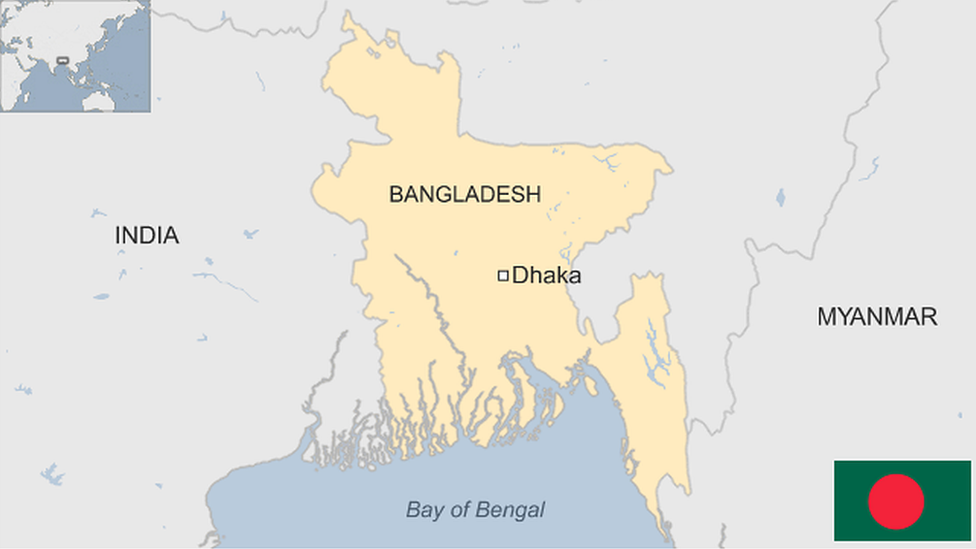Deadly violence over Bangladesh poll date
- Published
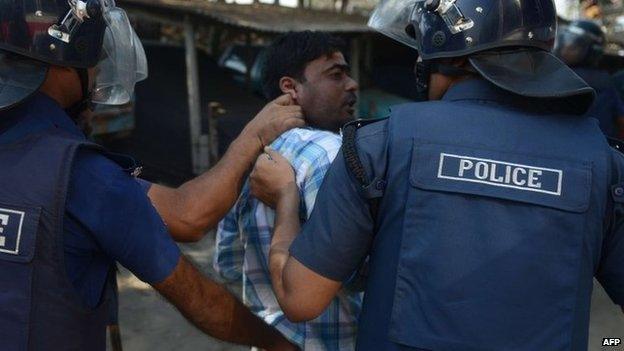
Police clashed with protesters around the country
At least six people have died in Bangladesh as opposition activists blocked roads, ripped up railway tracks and clashed with police in a protest against forthcoming polls, reports say.
Officials announced on Monday that the country would hold a general election on 5 January 2014.
Opposition supporters rejected the date and called for a transport blockade.
They want Prime Minister Sheikh Hasina to transfer power to a neutral caretaker government to oversee polls.
This was the practice adopted in previous elections, but Ms Hasina instead formed a multi-party cabinet last week to oversee the elections, angering her opponents.
The second day of a 48-hour countrywide general strike against the election - staged by 18 opposition parties - will be held on Tuesday.
The main opposition Bangladesh Nationalist Party (BNP) fears that if the governing Awami League oversees the elections - rather than a caretaker government - it will rig the vote.
Tear gas
Supporters of the BNP and Jamaat-e-Islami - Bangladesh's largest Islamist party - have clashed with police as protests turned violent around the country. At least 60 people were injured, local media reported.
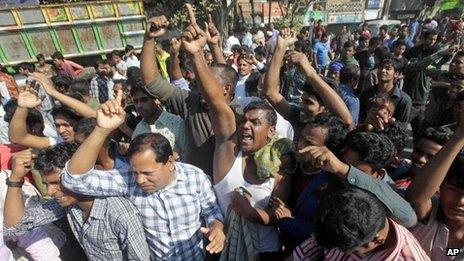
The BNP want the resignation of Prime Minister Sheikh Hasina so that a neutral caretaker government can oversee the election
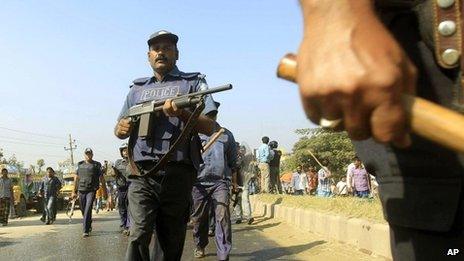
The protesters were met by a strong contingent of police and the security forces
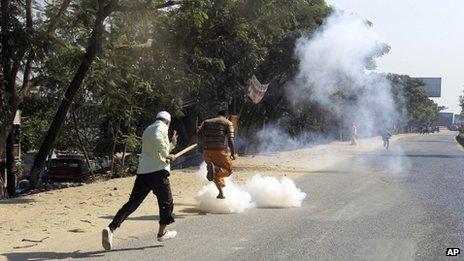
The protests in many places including Dhaka turned violent with police firing tear gas and baton-charging protesters
Some of the most serious violence took place in the northern town of Bogra, where an opposition supporter was killed in clashes with the police.
Earlier in the day, an office of the Election Commission in the town was set on fire by a group of masked men. In another incident, in the eastern town of Laksam, a passer-by was killed when police and opposition supporters exchanged gunfire.
In the capital, Dhaka, homemade bombs were detonated and railway lines were removed, reports say.
Police fired rubber bullets and tear gas at protesters in the cities of Rajshahi and Khulna, local media reported.
Disturbances were also reported in the southern district of Satkhira, the central district of Gazipur, the northern district of Sirajganj and the eastern district of Comilla.
"We fired rifles after about 500 protesters attacked us with home-made guns and small bombs," Comilla police official Abul Khaer told the AFP news agency.
Train services were severely disrupted when hundreds of demonstrators uprooted tracks and sleepers, setting fire to coaches and blocking lines.
Bangladesh Railway's Traffic Director Syed Zahur Hossain told AFP that there were at least 60 incidents of "train obstructions, including torchings, uprooting of tracks, attacking trains with stones and blockades of rail lines".
He said that major services between Dhaka and the cities of Chittagong and Sylhet were halted.
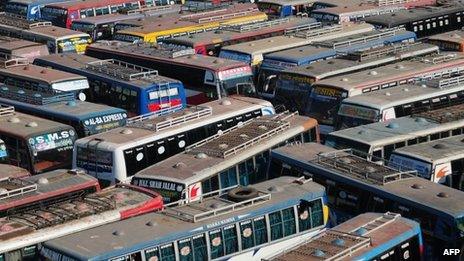
The strike brought public transport to a halt, with buses - the main form of transport between towns and cities - off the roads
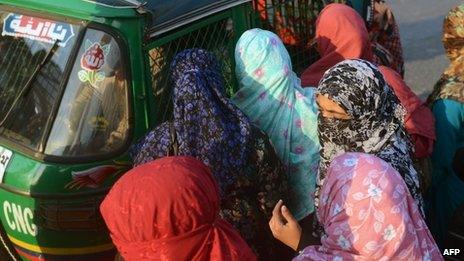
The demand for transport meant that three-wheeler drivers prepared to risk defying the strike did a roaring trade
- Published25 November 2013
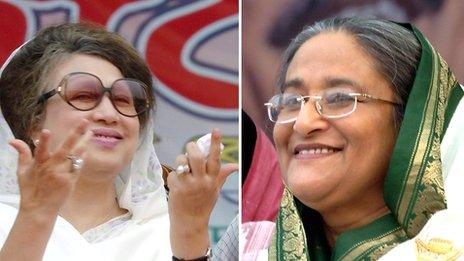
- Published10 March
